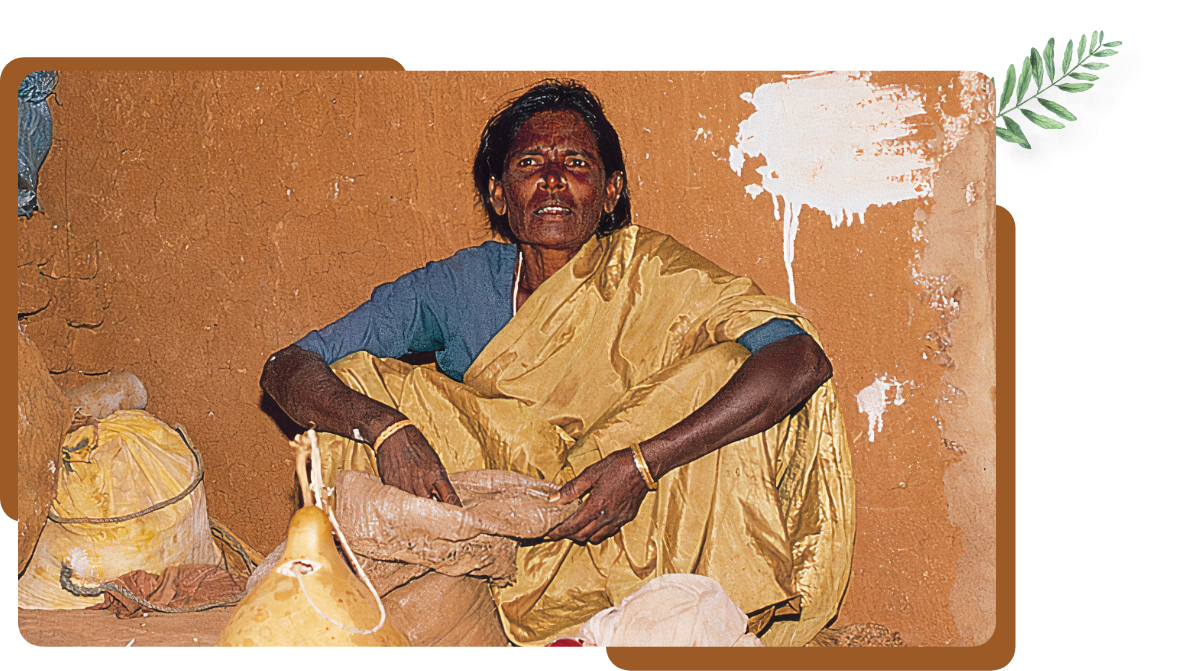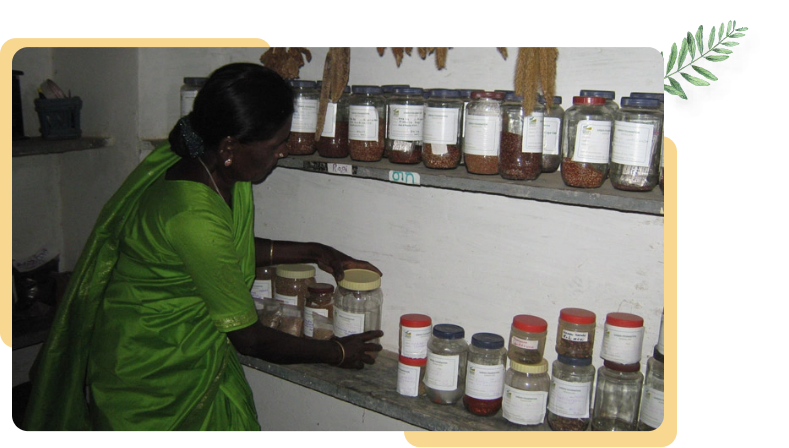Agrobiodiversity Conservation
Agrobiodiversity is a broad term that encompasses all components of biological diversity of relevance to food and agriculture as well as the larger agricultural ecosystems that contribute to production. Agrobiodiversity is the source of genetic material that is vital to future generations. Agrobiodiversity is crucial when it comes to preserving genes that could help improve crops, improving pest resistance, or adapting to climate change.

Preserve the Ecology
At the root of our work is agrobiodiversity conservation. We enable the setting up of community seed banks and networks which act as seed repositories that provide farmers free access to indigenous seeds. We facilitate in-situ conservation through kitchen and community gardens as well as on-farm rare variety demonstrations. We conserve seeds ex-situ in a gene bank that contains hundreds of indigenous seed varieties.
We facilitate farmers for the adoption of various soil and water conservation techniques that preserve the delicate ecology of their lands. We sensitise them to the climate change issues that have a direct impact on agriculture and train them on organic farming practices that replace harmful ones. Farmers are encouraged to use indigenous seed varieties that are well adapted to local climatic conditions, more resilient, and less in need of chemical inputs.
Community Seed Banks
Community Seed Banks (CSBs) are places of storage where indigenous seed varieties are conserved and managed by community members. These ex-situ conservation sites provide farmers with free and easy access to traditional seeds.
Managed mostly by women, CSBs have successfully harnessed the role of women in Indian agriculture as custodians of biodiversity. Traditionally, it has been women who select and store seeds after every harvest. In CSBs their understanding as resource persons is used to good effect, empowering them with a sense of pride and accomplishment that raises their footing in the community. We facilitate the set up of these seed banks by building a strong relationship with the community. Members are trained on seed selection, storage, record keeping and other aspects of seed bank management.
